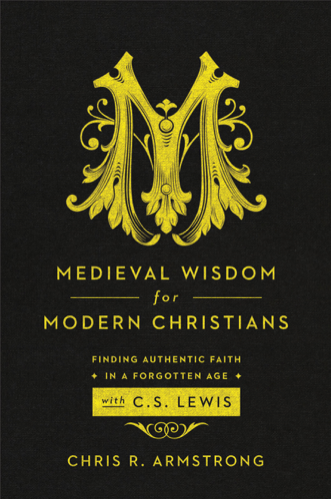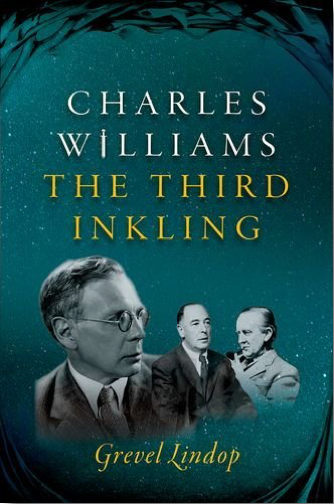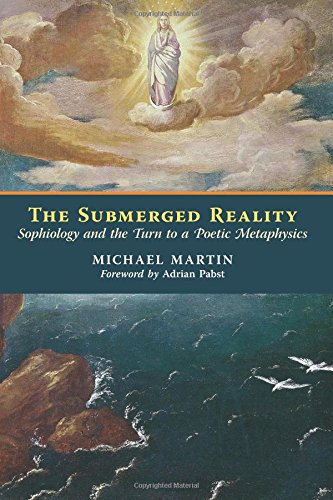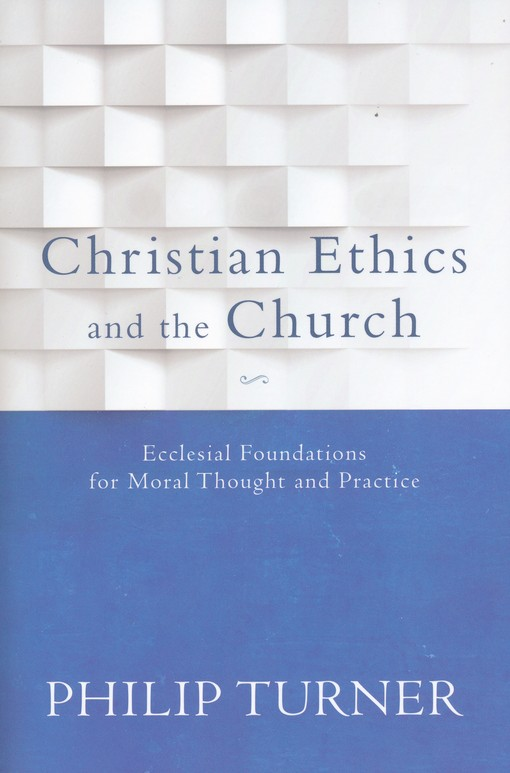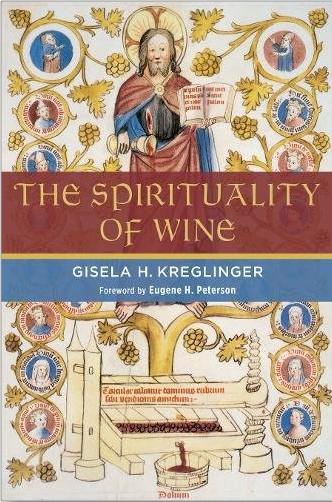PREVIEW
The player for this Journal volume is only available to current members or listeners with a legacy account. If you have an active membership, log in here. If you’d like to become a member — with access to all our audio programs — sign up here.
Guests heard on Volume 134
Chris Armstrong, author of Medieval Wisdom for Modern Christians: Finding Authentic Faith in a Forgotten Age with C. S. Lewis, on what Lewis knew (and we need to know) about the culture and faith of medieval Christianity
Grevel Lindop, author of Charles Williams: The Third Inkling, on the unique poetic imagination of a much neglected poet, novelist, and theologian
Michael Martin, author of The Submerged Reality: Sophiology and the Turn to a Poetic Metaphysics, on how the experience of Beauty in Creation and art can enable an encounter with divine Wisdom
William T. Cavanaugh, author of Field Hospital: The Church’s Engagement with a Wounded World, on why Christians should think about economics theologically, not just as a science or an ethical discipline
Philip Turner, author of Christian Ethics and the Church: Ecclesial Foundations for Moral Thought and Practice, on why Christian ethics has the health of the Church at its center, not just personal obedience or social justice
Gisela Kreglinger, author of The Spirituality of Wine, on wine, the culture of wine, and the superabundant goodness of God made manifest in the gift of wine
Related reading and listening
- Cultivating the Virtue of Reverence — Paul Woodruff (1943–2023) discusses the importance of reverence as a virtue that enriches relationships, elevates civic life, and helps leaders to wield power wisely. (53 minutes)
- Truth, goodness, and beauty (and why they matter) — FROM VOL. 147 Philosopher D. C. Schindler examines how postmodernism poses a unique threat to our sense of an interior self. (28 minutes)
- The downward spiral of all technocracies — Andrew Willard Jones explains the two paths that exist with the development of new technologies: one which leads to an expansion of the humane world and one which exploits and truncates both Creation and humanity. (65 minutes)
- From culture war to culture care — In this 2016 lecture, artist Makoto Fujimura asks what would it look like for Christians to be stewards of beauty and human flourishing in all areas of life and culture. (48 minutes)
- Economics and personhood — FROM VOL. 147 Mary Hirschfeld argues that modern economics makes some fundamental assumptions about personhood, material goods, and God that prevent the development of a truly human understanding of economic life. (20 minutes)
- Etiquette and ethics — In this essay, Judith Martin (a.k.a. Miss Manners) argues that etiquette is “civilization’s first necessity” and an indispensable societal virtue. (21 minutes)
- Cultures of chance, cultures of control — Historian Jackson Lears explains how gambling springs from a longing for an experience of “unbidden beneficence,” a repudiation of the idea of control that marks modernity. (49 minutes)
- Impact of “infotainment” on community — Neil Gabler and C. John Sommerville discuss how the mentalities conveyed by our experience with communications media work against the nurturing of community. (36 minutes)
- Eugenics and the rise of “evolutionary ethics” — FROM VOL. 70 Richard Weikart describes evolutionary ethics and examines the ties between national racism and the eugenics movements of the late nineteenth and early twentieth centuries. (16 minutes)
- The gift of liturgical time — In this lecture, Gregory Wilbur explains how liturgy and liturgical time align us to the rhythms and order of Creation, forming us as disciples. (45 minutes)
- Foolishness, gravity, and the Church — In this essay, Albert L. Shepherd V explains why George MacDonald’s story “The Light Princess” is meant for “all who are childlike in faith and imagination.” (8 minutes)
- “Prophet of holiness” — Timothy Larsen discusses a new edition of George MacDonald‘s Diary of An Old Soul, a slim book of poem-prayers to be read daily as a devotional aid. (30 minutes)
- Aslan, the Christ-figure of Narnia — Alex Markos explores the transformational power of Aslan as the Christ figure in C. S. Lewis’s Chronicles of Narnia. (31 minutes)
- The relationship between prudence and reality — In this lecture, Ken Myers explains how the virtue of prudence is fundamentally connected with a deep and anchored understanding of reality. (54 minutes)
- Books worthy of a lifetime of encounters — FROM VOL. 69 Daniel Ritchie discusses why great books programs survive mainly in Christian institutions while declining in secular ones. (13 minutes)
- The political wisdom of Edmund Burke — FROM VOL. 28 Daniel Ritchie discusses the enduring political wisdom of British statesman and political thinker Edmund Burke (1729–1797). (13 minutes)
- Literature for wisdom, not propaganda — FROM VOL. 23 Daniel Ritchie provides a constructive alternative to the ideological captivity of literature and literary studies. (13 minutes)
- Mars Hill Audio Journal, Volume 162 — FEATURED GUESTS: Mark Noll, R. Jared Staudt, Paul Weston, William C. Hackett, Hans Boersma, and David Paul Baird
- Early evangelical response to C. S. Lewis — Historian Mark Noll discusses the reasons why American evangelicals were initially slow to warm to Lewis. (15 minutes)
- The integration of theoretical and mythic intelligence — FROM VOL. 156 William C. Hackett discusses the relationships between philosophy and theology, and of both to the meaning embedded in myth. (29 minutes)
- “A state of divine carelessness” — FROM VOL. 121
Daniel Gabelman attempts to correct the notion that George MacDonald prizes seriousness and sobriety. (20 minutes)
- In praise of a hierarchy of taste — In a lecture at a CiRCE Institute conference, Ken Myers presented a rebuttal to the notion that encouraging the aesthetic appreciation of “higher things” is elitist and undemocratic. (58 minutes)
- When is a market “free”? — William T. Cavanaugh argues for a richer conception of freedom than the reductionist one promoted by economist Milton Friedman. (44 minutes)
- On wonder, wisdom, worship, and work — Classical educator Ravi Jain dives deeply into the nature, purpose, and interconnectedness of the liberal, common, and fine arts. (43 minutes)
- “Reading Lewis with blinders on” — Chris Armstrong explains how C. S. Lewis’s work is grounded deeply in the Christian humanist tradition. (45 minutes)
- On The Abolition of Man — FROM VOL. 154 Michael Ward explains why The Abolition of Man is one of Lewis’s most important but also most difficult books. (36 minutes)
- Seeking control, in white magic and The Green Book — Alan Jacobs on C. S. Lewis’s critique of the modern pursuit of god-like control
- Education, reason, and the Good — Justin Buckley Dyer and Micah J. Watson on C. S. Lewis’s argument about natural law
- Orienting reason and passions — In an essay titled “The Abolition of Mania” (Modern Age, Spring 2022), Michael Ward applies C. S. Lewis’s insights to the polarization that afflicts modern societies. (16 minutes)
- The negation of transcendence — Michael Hanby argues that our current civilizational crisis can be understood as a “new totalitarianism” that negates or disallows every form of transcendence. (32 minutes)
- Creation as beauty and gift — FROM VOL. 67 David Bentley Hart describes how the Christian understanding of Creation as beauty and gift, as the outward expression of the delight the Trinity has in itself, reveals a vision of reality different from the pagan or fatalist vision of reality. (12 minutes)
- Milton Friedman meets Augustine — We present an interview from our archives with theologian William Cavanaugh, in which he examines the free market, consumerism, globalization, and scarcity, all parsed within an unabashedly theological framework. (37 minutes)
- The infinity of beauty in Bach — David Bentley Hart on why Johann Sebastian Bach is the greatest of Christian theologians
- A theology of active beauty — In a 2010 lecture, George Marsden examines a few ways in which the distorting effects of Enlightenment rationalism were resisted in the work of Jonathan Edwards. (64 minutes)
- Fermentation: Curse or blessing? — In anticipation of Lenten practices of abstinence, we present two archive interviews about wine, with Jennifer Woodruff Tait and Gisela Kreglinger. (38 minutes)
- Cavanaugh, William T. — FROM THE GUEST PAGE: William T. Cavanaugh is Professor of Catholic Studies and Director of the Center for World Catholicism and Intercultural Theology, DePaul University.
- Distributist & sustainable economics — Two interview from 2010: John C. Médaille summarizes how distributist economics differs from both capitalism and socialism. Then Herman Daly discusses the danger of economic theory abstracted from the actual stuff of Creation. (44 minutes)
- Why economists need meta-economics — Joseph Pearce on the key insight of E. F. Schumacher
- The Symbol of Authority — In the second of two lectures given by D. C. Schindler, he explores the nature of authority with reference to the transcendental dance of Truth, Goodness, and Beauty. (60 minutes)
- An unlikely trio in life (and in death) — FROM VOL. 1Philosopher Peter Kreeft was interviewed in 1982 by Ken Myers about his book, Between Heaven and Hell. In 1992, that interview was featured on the pilot cassette tape which became the Mars Hill Tapes. (10 minutes)
- Mars Hill Audio Journal, Volume 155 — FEATURED GUESTS:
Donald Kraybill, Thaddeus Kozinski, David Bentley Hart, Nigel Biggar, Ravi Scott Jain, and Jason Baxter
- The Narnian as Jeremiah — Michael Ward on the bleak prognosis in C. S. Lewis’s The Abolition of Man
- Mars Hill Audio Journal, Volume 154 — FEATURED GUESTS:
Felicia Wu Song, Michael Ward, Norman Wirzba, Carl Trueman, D. C. Schindler, and Kerry McCarthy
- Before Church and State — Andrew Willard Jones challenges some of the conventional paradigms of thinking about political order, arguing that modern assumptions of the relationship between Church and state color how we understand history. (54 minutes
- Middle Earth’s animating logic — In his 1993 article “J. R. R. Tolkien: Lover of the Logos,” Mark Sebanc explains how the heart of Tolkien’s creative work — in stories and essays — is energized by a recognition that the presence of what Balthasar calls the “Christ form” is the source of all meaning and beauty. (60 minutes)
- The purpose of government and God’s eternal purpose — Philip Turner on understanding the state in light of the eschatological reality of the Church
- For the beauty of the earth — Dietrich von Hildebrand on how the love of God deepens our love for the beauty found in Creation
- Beauty, here and beyond — John F. Crosby on Dietrich von Hildebrand’s Aesthetics and his description of the mysterious signals of transcendence present in earthly beauty
- Mother of all virtues — Dietrich von Hildebrand on reverence
- MYST and mythic guests — Game designers Rand and Robyn Miller explain how their game’s creation was influenced by their love for the fantasy of J. R. R. Tolkien and C. S. Lewis. (13 minutes)
